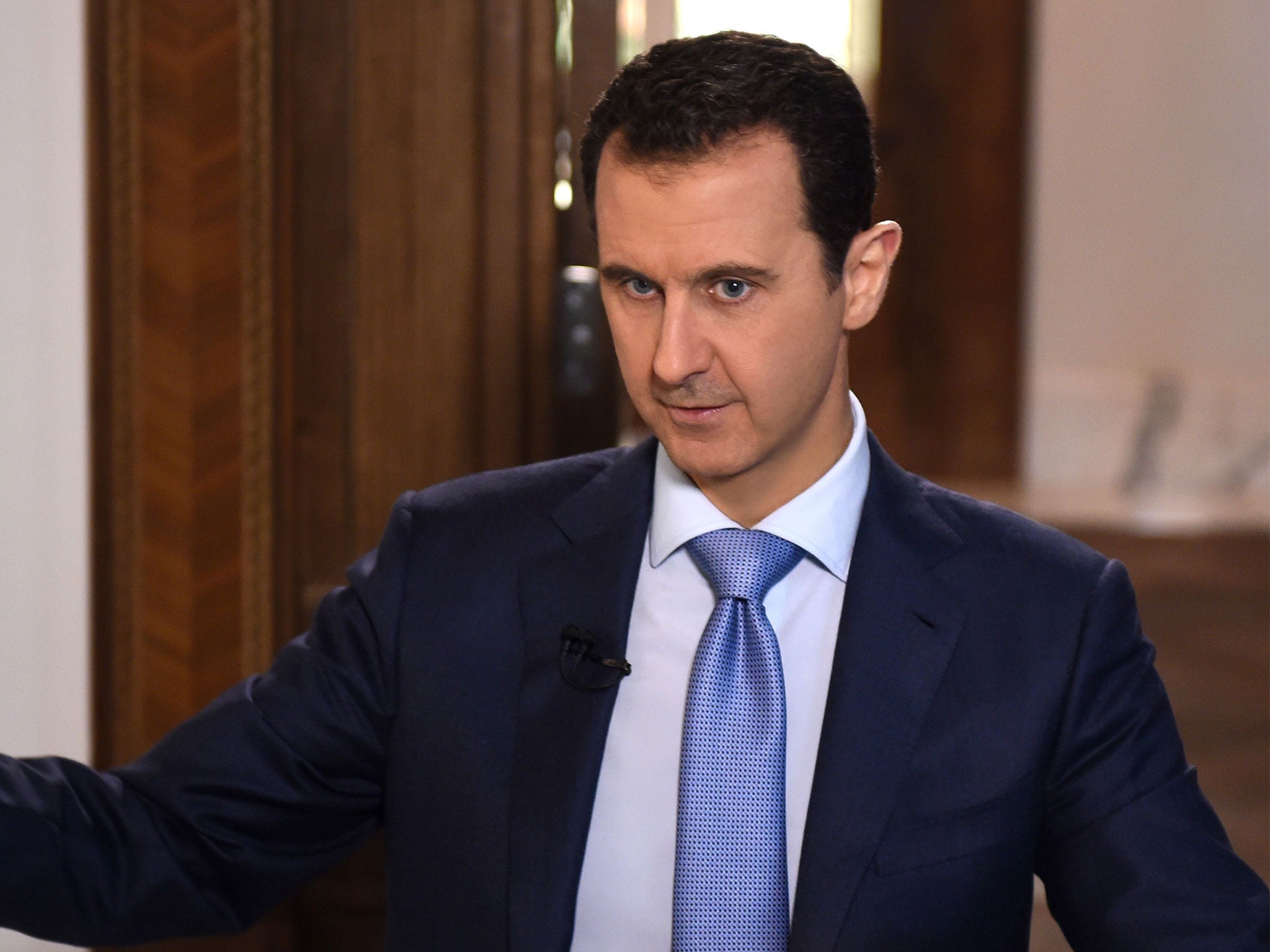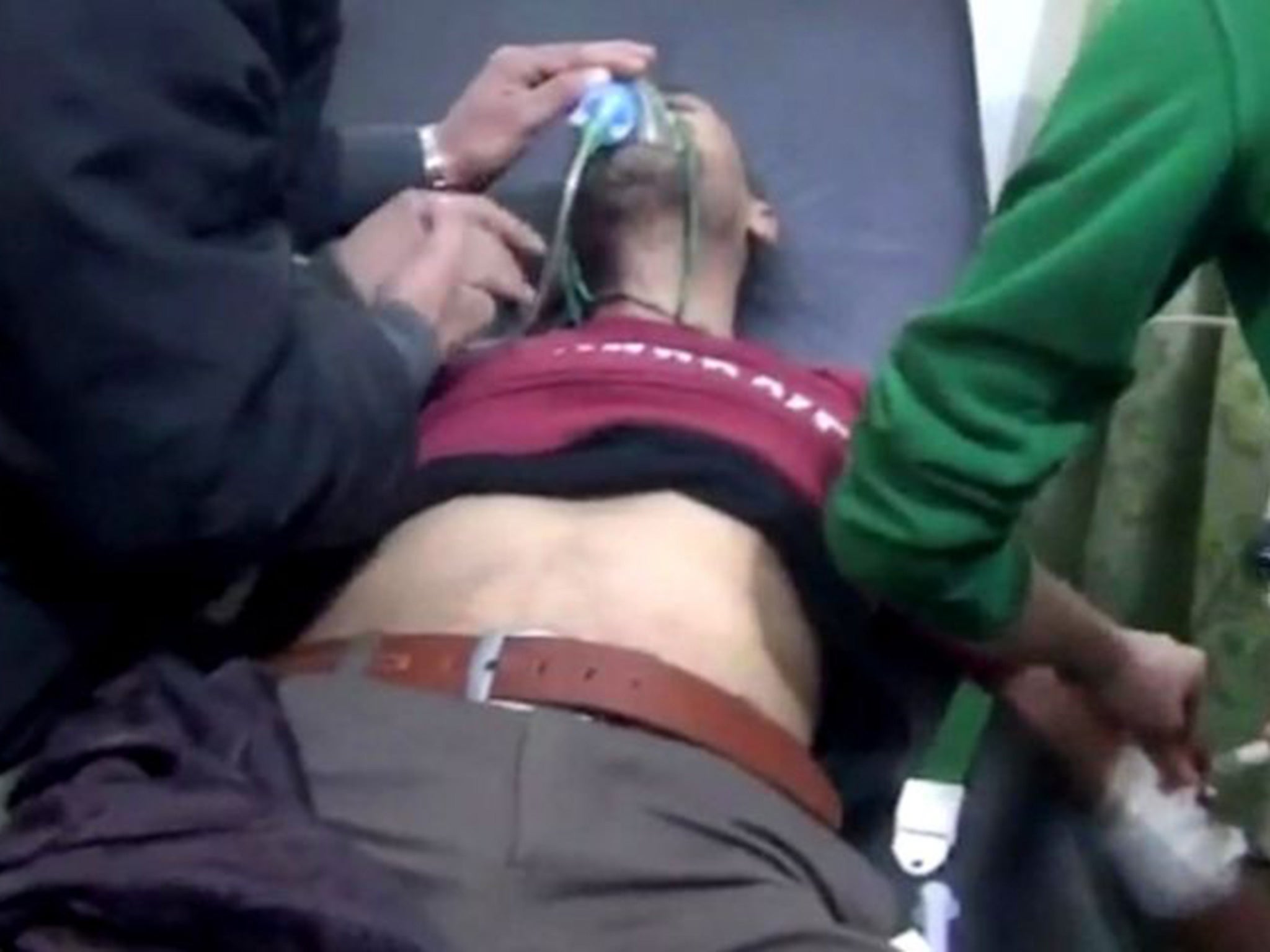Syria conflict: Assad regime accused of chemical weapon attack after five ‘suffocate’
Rebels say symptoms of those who died were those of sarin gas, a nerve agent whose use would breach United Nations resolutions

Your support helps us to tell the story
From reproductive rights to climate change to Big Tech, The Independent is on the ground when the story is developing. Whether it's investigating the financials of Elon Musk's pro-Trump PAC or producing our latest documentary, 'The A Word', which shines a light on the American women fighting for reproductive rights, we know how important it is to parse out the facts from the messaging.
At such a critical moment in US history, we need reporters on the ground. Your donation allows us to keep sending journalists to speak to both sides of the story.
The Independent is trusted by Americans across the entire political spectrum. And unlike many other quality news outlets, we choose not to lock Americans out of our reporting and analysis with paywalls. We believe quality journalism should be available to everyone, paid for by those who can afford it.
Your support makes all the difference.Syrian opposition activists accused the Assad regime of firing poisonous gas at rebel-held areas in a town south-west of Damascus that was previously the target of a chemical weapons attack.
Residents of Moadamiyeh, where the death of hundreds of people in August 2013 led to an international drive to remove and destroy Syrian government chemical weapons stocks, say five people died of suffocation after the town was struck by what activists called “poison gas” on Tuesday night.
The town has been under steady attack for five days, and the government is said to have used helicopters to drop barrel bombs and fire rockets at civilian areas.
Rebels said the symptoms of those who died were those of sarin gas, a nerve agent whose use would breach United Nations resolutions. The claim of a poison gas attack could not be independently verified, but was also reported by the Local Co-ordination Committees group and the main Western-backed Syrian National Coalition group.
After the 2013 attack the US accused the Syrian regime of crossing a “red line”, threatening air strikes in response until Russia helped to broker a deal under which the regime gave up its chemical weapons stockpiles to the UN for destruction in 2014.

Hamish de Bretton-Gordon, a chemical weapons expert, spoke by telephone to staff working in a clinic that received some of the victims. The former British army officer has trained Syrian medical teams in identifying and documenting the aftermath of a chemical weapons attack.
From the symptoms described and the photographs he saw, he concluded that it was of “greater probability” that the agent used was sarin, though he cautioned that, without samples, it was impossible to be certain. He would normally expect a sarin attack to produce a larger number of victims, but this could mean that the gas in question was old, he said.
He said that he and other experts believed that there were chemical weapons missing from the stockpile declared by President Assad and handed over to the UN.
Mr De Bretton-Gordon said that there was a “higher probability” that the attack was carried out by Assad regime forces, pointing to the fact that two of the rockets to launch the gas used were the same as those that were used in the 2013 attack.
However, he said it was more likely to be the fault of “rogue commanders” rather than a result of an order from the top, because he did not believe that the use of chemical weapons would be tolerated by the regime’s ally and sponsor, Vladimir Putin, the Russian President. “I find it unbelievable that Putin would allow it,” he said.
Separately, Russia’s defence ministry said that its air force had carried out 302 sorties over the past six days, striking 1,093 Isis targets that included a training camp where there were recruits from Turkey and other countries, including former Soviet republics that are now independent states.
Meanwhile Major General Igor Konashenkov, a spokesman for the defence ministry, hit back at an Amnesty report that blamed Russia for the deaths of 200 men, women and children in air attacks, purportedly against Isis, that it said could be considered war crimes.
The report also accused Moscow of lying in its attempts to rebut claims of civilian targets and casualties. Mr Konashenkov said the Amnesty report itself contained “fake information”.
Join our commenting forum
Join thought-provoking conversations, follow other Independent readers and see their replies
Comments